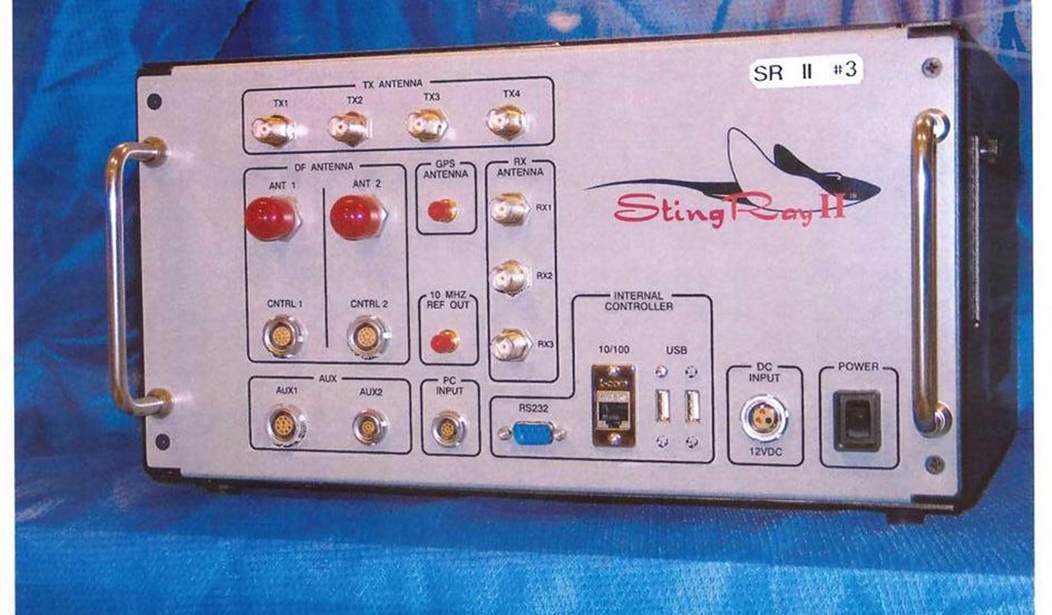Here at PJ Media, we’ve recently seen both sides weigh in about civil asset forfeiture by law enforcement. Megan Fox expressed her belief that police often take what they shouldn’t, and Jack Dunphy defended the practice as employed by police departments across the nation.
Regardless of where any of us stands on civil forfeiture, we may often wonder what police departments do with the money they’ve seized from raids and investigations. In Massachusetts, police departments keep the money they seize more often than not — even if no charges stem from the investigation — and the rules on how they can spend that money are lax.
A recent investigation by ProPublica and Boston’s WBUR uncovered that the Boston Police Department bought controversial spy equipment in 2019 and used funds from seized assets to make the purchase outside of their budget and thus hide the purchase from the Boston City Council, who oversees the department’s annual budget.
The device in question tracks cellphone usage and data. Pro Publica reports:
Also known as a “stingray,” the cell site simulator purchased by Boston police acts like a commercial cellphone tower, tricking nearby phones into connecting to it. Once the phones connect to the cell site simulator’s decoy signal, the equipment secretly obtains location and other potentially identifying information. It can pinpoint someone’s location down to a particular room of a hotel or house.
While this briefcase-sized device can help locate a suspect or a missing person, it can also scoop up information from other phones in the vicinity, including yours.
There’s legislation before the Senate with bipartisan support that seeks to regulate the use of “stingrays,” and the American Civil Liberties Union maintains that law enforcement agencies often use these devices secretly. The St. John’s Law Review points out that there are Fourth Amendment concerns that accompany the use of cell site simulators:
The police can secretly track your every physical movement, listen to your private conversations, and collect data from your cell phone—all without first getting a warrant based on probable cause, signed off by a judge. “WTF?!” you text. Indeed, this practice by law enforcement using portable Stingray cell-site simulators as digital surveillance tools has also raised the eyebrows of privacy advocates and state and federal courts across the country in the past few years.
These concerns are part of what makes the Boston Police Department’s purchase of these devices — to the tune of $627,000 — so controversial. Of course, the rest of the brouhaha stems from the nature of the purchase.
The Boston City Council reviews the BPD annual budget, scrutinizing proposed spending. But the surveillance equipment wasn’t part of the budget. Because it was purchased with civil forfeiture funds, BPD was able to circumvent the council.
According to an invoice obtained by WBUR, the only city review of the purchase — which was made with federal forfeiture funds — came from the Procurement Department, confirming that the funds were available.
Police leaders wouldn’t comment to ProPublica on the purchase, and a spokesman wouldn’t elaborate on the process. But other local leaders were surprised to learn what the department had spent forfeited assets on.
Related: In Defense of Civil Forfeiture
Boston City Councilor Ricardo Arroyo told ProPublica, “I couldn’t even tell you, and I don’t think anybody on the council can necessarily tell you … how these individual purchases are made.”
The 2019 purchase wasn’t the first of its kind.
This isn’t the first time the BPD has bought spy equipment that is shrouded in mystery.
It paid Harris Corporation, a Florida-based defense contractor, more than $400,000 for cell site simulator equipment in 2013-14. While the majority of that money came out of the regular police budget, much of its use and purpose has been redacted in past public records.
And Boston police don’t always obtain warrants to spy on people when they use cell site simulators. A 2016 report from radio station WGBH shed more light on the use of “stingrays”:
“When we have information that we have to get off a cell phone, we normally apply for a search warrant,” [Boston Police Commissioner William B.] Evans said.
But the department did not obtain warrants in any of the 11 instances in which it deployed the tracker since 2009, when it purchased one of the devices, according to information released by police over the past four months to The Eye, a publication of the New England Center for Investigative Reporting, and to the American Civil Liberties Union of Massachusetts.
The department also used it another 11 times on behalf of outside agencies, but declined to identify them; city lawyers said those agencies may have sought warrants before asking the department for assistance.
Regardless of where you stand on the use of civil asset forfeiture, it should bother you that police departments could be spying on you without a warrant and purchasing the equipment that they use to do so outside of their regular budgets.
Right now law enforcement agencies like the Boston Police Department may be using these devices to surveil criminal activity, but what’s to stop an overzealous local, state, or federal entity from spying on everyday citizens? After all, we’ve seen the Obama administration target conservatives using the IRS and the Biden administration mull over using social media to stamp out dissent from leftist thought.
Why wouldn’t we expect some Democrat administration to start spying on people who disagree with them? That’s what should bother us all.










Join the conversation as a VIP Member